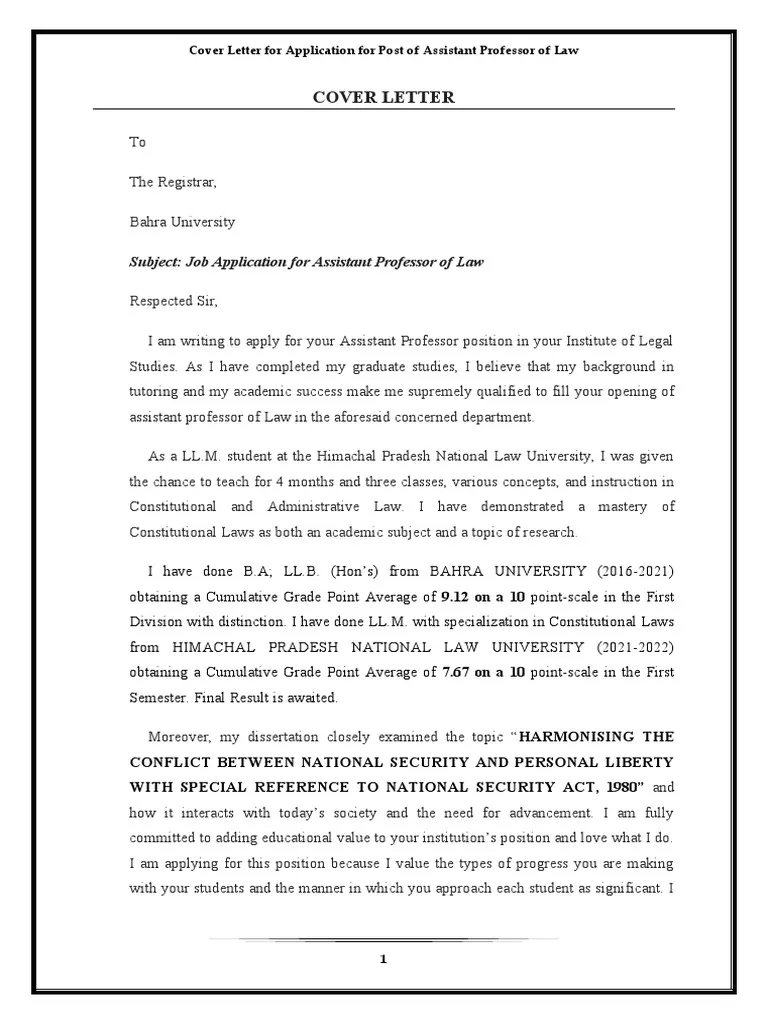Crafting a Compelling Criminal Justice Cover Letter
A well-crafted cover letter is your first opportunity to make a strong impression on potential employers in the criminal justice field. It serves as a crucial introduction, allowing you to highlight your skills, experience, and passion for the profession. In a competitive job market, a compelling cover letter can set you apart from other applicants and significantly increase your chances of landing an interview. This guide provides essential tips and strategies to help you create a cover letter that captures the attention of hiring managers and effectively showcases your qualifications. Remember, your cover letter is more than just a formality; it’s a marketing tool that sells your abilities and demonstrates your suitability for the role.
Understanding the Importance of a Cover Letter
The importance of a cover letter in the criminal justice field cannot be overstated. Unlike a resume, which provides a factual overview of your qualifications, a cover letter allows you to express your personality, enthusiasm, and genuine interest in the specific job and organization. It’s your chance to tell a story, connecting your experiences and skills with the requirements of the position. The cover letter provides context to your resume, explaining why you are the best fit for the role. Without it, you risk your application being overlooked, even if you possess the necessary qualifications. It shows you have taken the time to research and understand the role and the organization.
Highlighting Relevant Skills and Experience
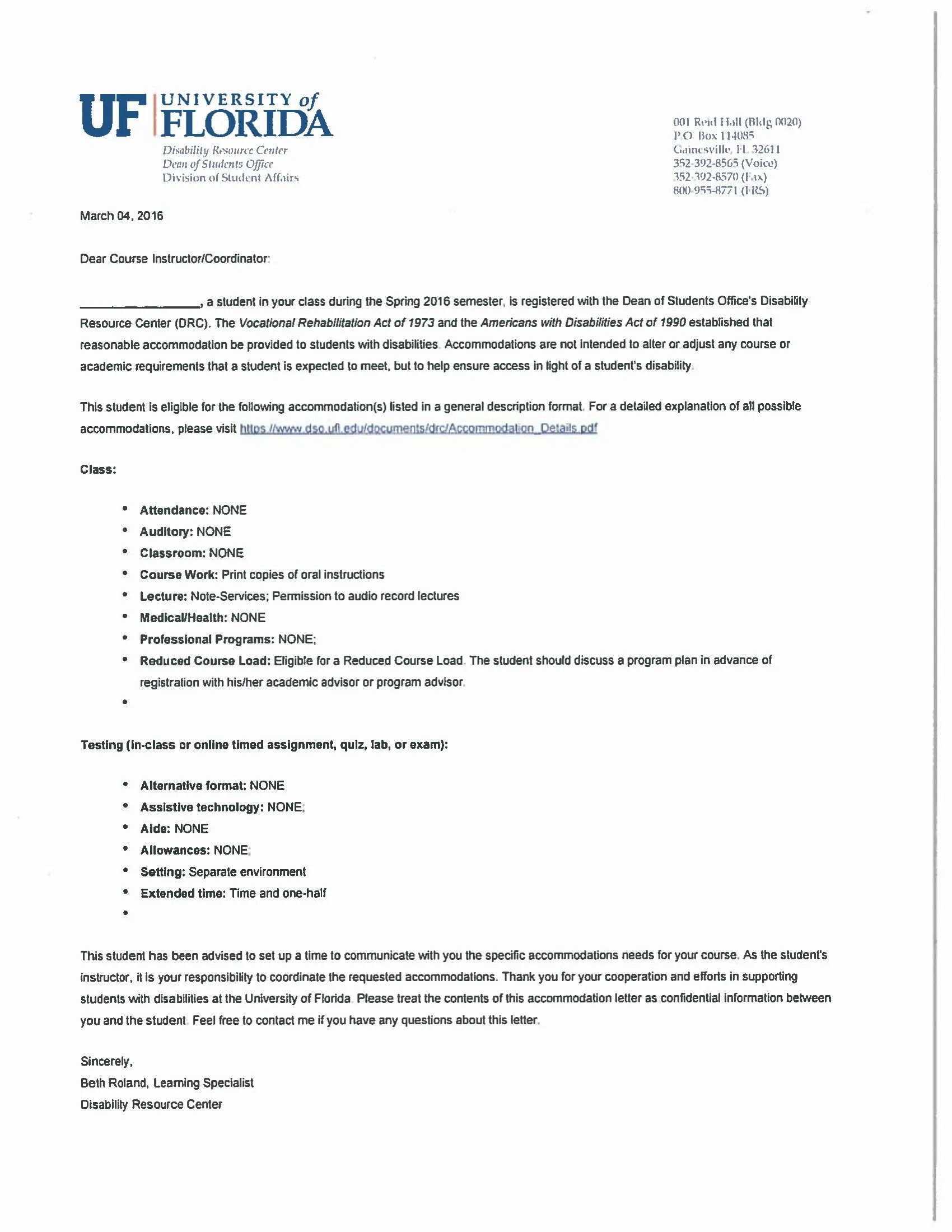
When crafting your cover letter, carefully select and highlight the skills and experiences most relevant to the job you are applying for. Criminal justice jobs often require a blend of technical skills, such as proficiency in data analysis or knowledge of legal procedures, and soft skills, such as communication, critical thinking, and conflict resolution. Provide specific examples of how you’ve applied these skills in previous roles or educational settings. Quantify your accomplishments whenever possible – for example, “Managed a caseload of 50+ clients” or “Reduced recidivism rates by 15%.” Demonstrating a direct link between your skills and the job requirements will make your cover letter more impactful and increase your chances of being selected for an interview. Use strong action verbs to describe your achievements and contributions.
Showcasing Your Knowledge of the Field
A successful criminal justice cover letter demonstrates your understanding of the field and current issues. Show that you are informed about the challenges and complexities of the criminal justice system. Mention relevant legislation, policies, or court cases. Reflect on current trends such as the rise of cybercrime, the importance of community policing, or the focus on rehabilitation. This will demonstrate your active interest in the field and your commitment to staying up-to-date with industry developments. Showing this level of awareness will highlight your dedication and intellectual curiosity. This also includes your awareness of diversity, equity, and inclusion within the criminal justice system.
Tailoring Your Cover Letter to the Job
Generic cover letters rarely impress hiring managers. Tailoring your cover letter to each specific job application is crucial. Take the time to thoroughly review the job description, identifying the key requirements and desired qualifications. Then, carefully craft your cover letter to directly address those requirements. Explain how your skills and experience align with the needs of the role. Use keywords and phrases from the job description to ensure your application is easily searchable. Customizing your cover letter shows that you’ve invested time and effort, indicating your genuine interest in the position and the organization. Consider modifying your cover letter for each application, even if the jobs seem similar.
Researching the Employer
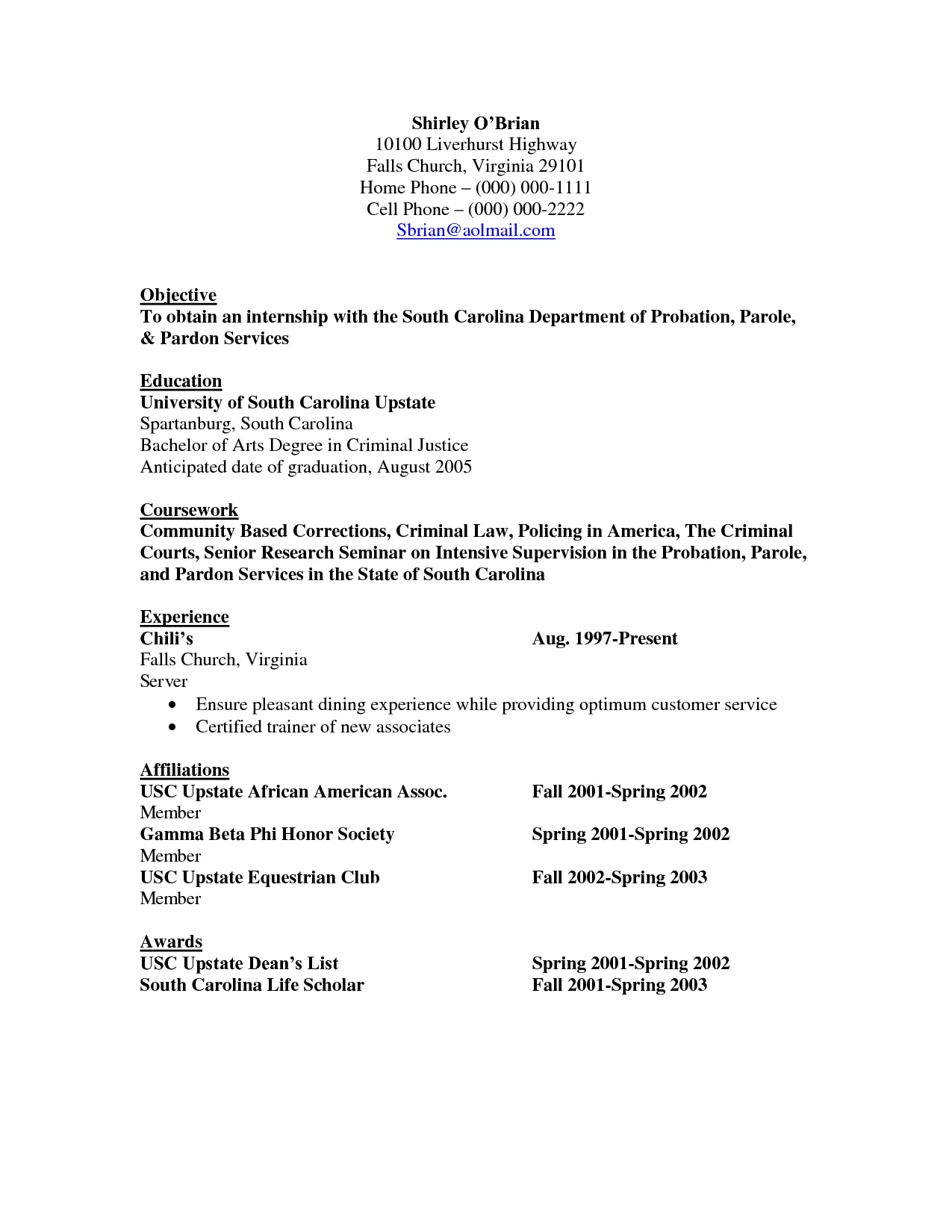
Before submitting your cover letter, thoroughly research the employer. Understand their mission, values, and recent initiatives. Look at their website, social media pages, and any news articles or press releases. Showing this knowledge in your cover letter demonstrates your interest in the organization. Address your cover letter to the hiring manager or the specific person listed in the job posting; avoid generic greetings. Researching the employer also allows you to tailor your letter to align with the organization’s goals. Mention any specific programs, projects, or values that resonate with you. This level of customization will set you apart from other applicants and make your application more memorable.
Matching Your Skills to Job Requirements
Carefully analyze the job description and make a list of the required skills and qualifications. Then, in your cover letter, directly address each requirement. Provide specific examples from your past experiences that demonstrate you possess these skills. Use the STAR method (Situation, Task, Action, Result) to describe your accomplishments and showcase your capabilities. If the job requires specific software proficiency, mention your experience with those programs. If teamwork and communication are important, provide examples of successful team projects and how you contributed. This targeted approach makes it easier for hiring managers to see how your skills align with the needs of the role. Make sure to avoid simply listing your skills; instead, show how you used them to achieve positive outcomes.
Using Keywords Strategically
Many employers use applicant tracking systems (ATS) to screen resumes and cover letters. To ensure your application gets noticed, use keywords from the job description throughout your cover letter. Identify the most important skills and qualifications and incorporate the relevant keywords naturally into your writing. Avoid keyword stuffing, which can make your letter sound unnatural. Instead, weave the keywords seamlessly into your sentences, providing context and examples. For instance, if the job description emphasizes “investigative skills,” use that phrase when describing your experience in conducting investigations. This strategy helps your cover letter pass the initial screening process and ensures that your application reaches the hiring manager.
Formatting and Structure for Impact
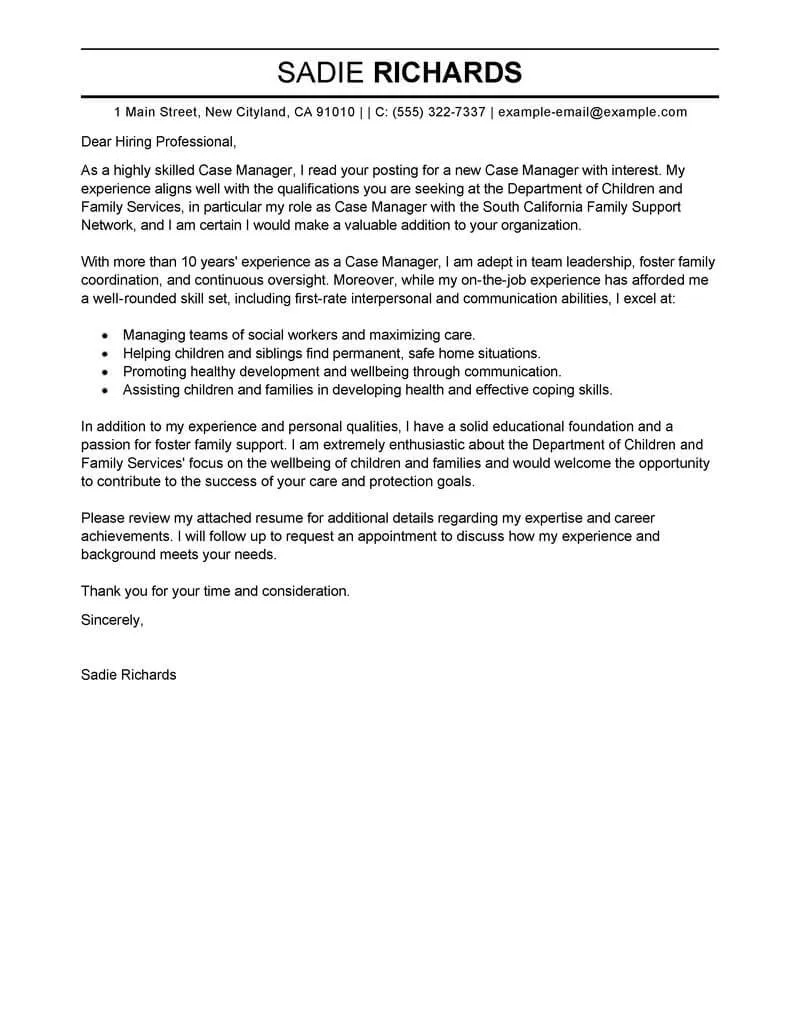
The formatting and structure of your cover letter play a significant role in making a positive first impression. A well-formatted cover letter is easy to read and visually appealing. Use a professional font, such as Times New Roman, Arial, or Calibri, in a readable size (11 or 12 points). Maintain consistent margins and line spacing. Break up long paragraphs into shorter, more manageable sections. Use bullet points or numbered lists to highlight your key accomplishments and skills. These formatting elements ensure your cover letter is easy to scan and digest. This makes it more likely that the reader will pay attention to the content of your letter.
Creating a Professional Header
Your cover letter should begin with a professional header that includes your contact information: your full name, phone number, email address, and LinkedIn profile URL (optional). Ensure your email address is professional-sounding (avoid nicknames or unprofessional handles). Below your contact information, include the date and the employer’s contact information (if available), including the hiring manager’s name and title, and the company address. This helps to personalize your letter and demonstrates your attention to detail. A well-structured header sets the tone for the rest of your cover letter, establishing a professional and polished appearance.
Writing a Strong Opening Statement
The opening statement of your cover letter is crucial. It’s your first opportunity to grab the reader’s attention and make them want to continue reading. Instead of starting with a generic opening like “I am writing to express my interest…”, try a more engaging approach. State the specific position you are applying for and briefly explain why you are interested. You can also mention where you saw the job posting, and express enthusiasm for the role and the organization. The opening statement should quickly demonstrate your understanding of the role and your suitability for it. A strong opening statement will pique the hiring manager’s interest and encourage them to learn more about you.
Structuring the Body Paragraphs Effectively
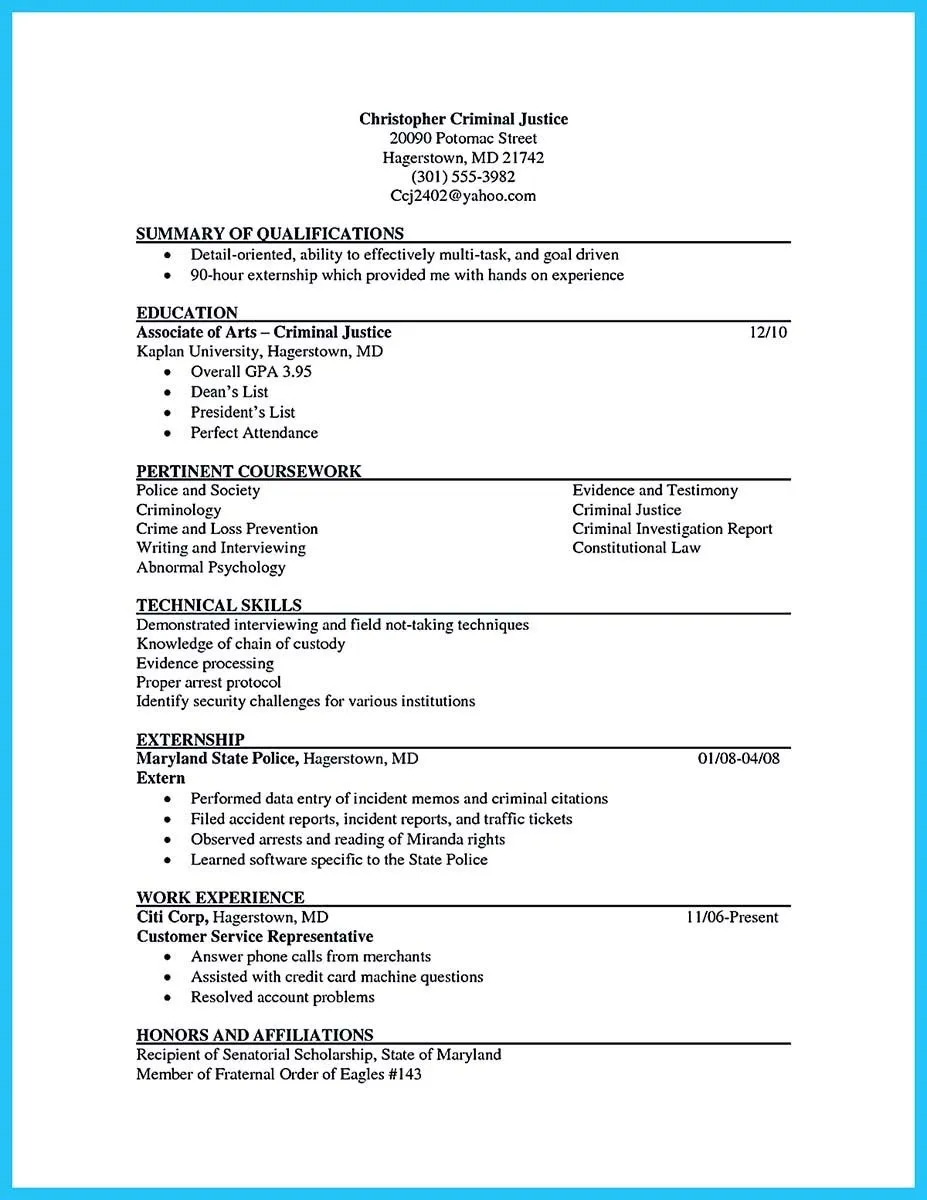
The body of your cover letter should be structured to showcase your skills, experience, and qualifications in a clear and concise manner. Use 2-3 body paragraphs to discuss your relevant experiences and accomplishments. Each paragraph should focus on a specific skill or area of expertise. Provide specific examples and quantify your achievements whenever possible. Use the STAR method (Situation, Task, Action, Result) to structure your responses and highlight your contributions. Make sure your paragraphs are well-organized, and include supporting evidence to back up your claims. This allows hiring managers to quickly understand your capabilities and how you can contribute to the team.
Composing a Powerful Closing
Your closing paragraph should reiterate your interest in the position and express your gratitude for the reader’s time and consideration. Summarize your key qualifications and reiterate why you’re a strong candidate. End with a clear call to action, such as expressing your availability for an interview and providing your contact information. It is helpful to state that you look forward to discussing your application further. Proofread the closing paragraph carefully to ensure it is free of errors and conveys a positive, confident tone. A well-crafted closing paragraph can leave a lasting positive impression on the hiring manager.
Avoiding Common Cover Letter Mistakes
Avoiding common mistakes is essential for creating an effective cover letter. Even small errors can undermine your application and negatively impact your chances of being considered for a job. Therefore, take the time to identify and correct these common pitfalls to make your cover letter stand out for the right reasons. This not only highlights your attention to detail but also demonstrates your professionalism and commitment to quality.
Typos and Grammatical Errors
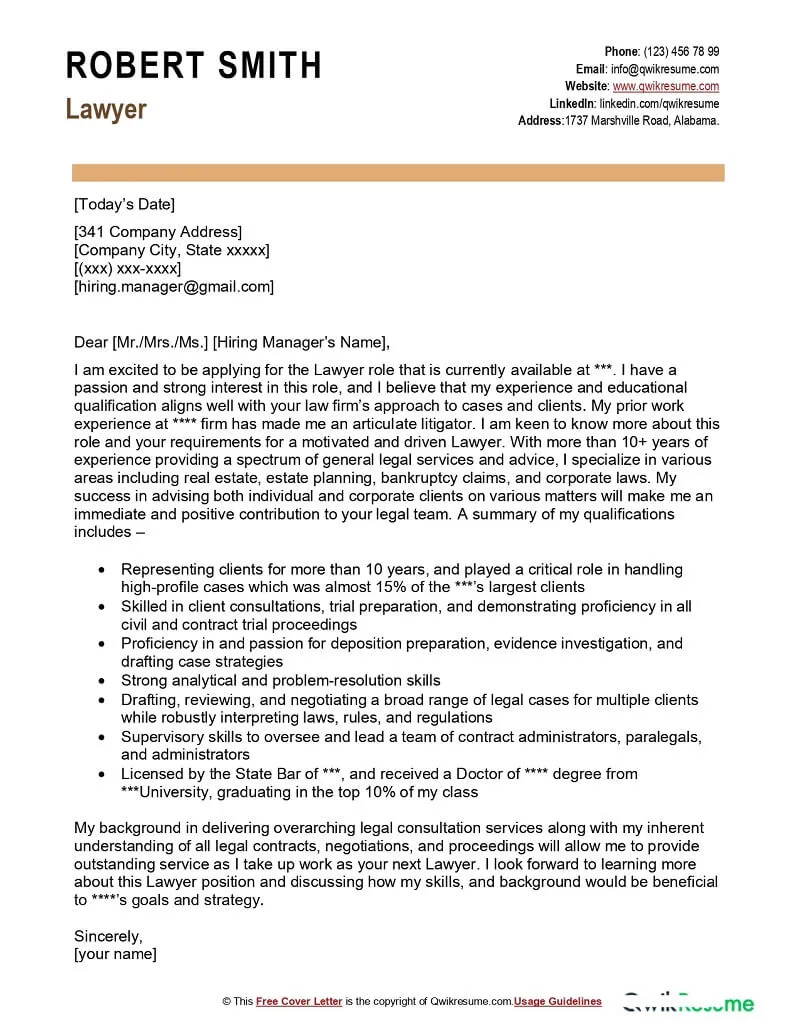
Typos and grammatical errors are a significant deterrent for hiring managers. These errors suggest a lack of attention to detail and carelessness. Proofread your cover letter carefully multiple times, and consider using grammar-checking software to catch any mistakes. Ask a friend, family member, or career counselor to review your cover letter. Correcting these errors ensures your cover letter presents you as a polished and professional candidate. Remember, your cover letter represents you and your abilities; it is very important that it is flawless.
Generic Cover Letters
Submitting a generic cover letter is another common mistake. These letters fail to address the specific requirements of the job or demonstrate a genuine interest in the organization. Hiring managers can easily spot generic letters, and they are unlikely to be considered. Always tailor your cover letter to each job you apply for, highlighting the relevant skills and experience. Customize the opening statement to show your enthusiasm and understanding of the role. Show that you’ve taken the time to research the company and express why you’re a good fit. Show your unique approach and perspective, which will set you apart from other candidates.
Focusing Solely on Yourself
While it’s important to showcase your skills and experience, avoid focusing solely on yourself. Your cover letter should also emphasize how you can contribute to the organization and the benefits you bring to the role. Frame your accomplishments in terms of the value you can provide to the employer, highlighting how your skills and experience align with the job requirements and contribute to the company’s goals. Instead of simply listing your responsibilities, explain the positive outcomes you achieved and how you can replicate those achievements in the new role. This approach makes your cover letter more compelling and demonstrates your ability to provide value.
Ignoring the Job Description
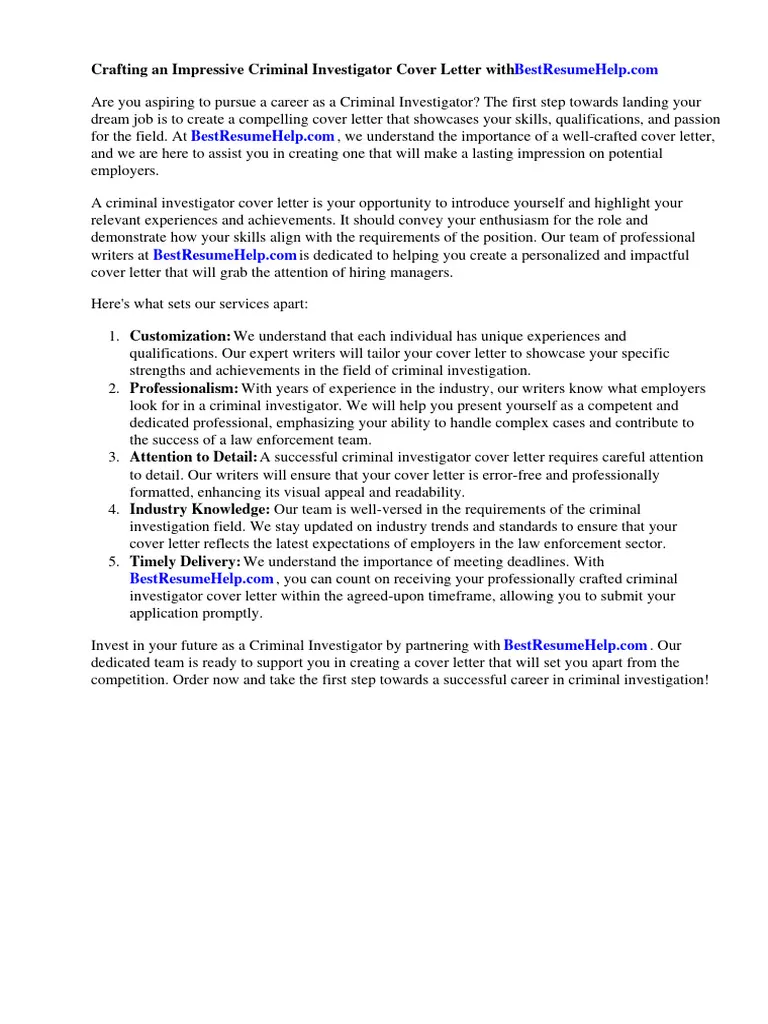
Failing to address the job description is a serious error. Your cover letter should directly address the requirements outlined in the job posting, demonstrating how your skills and experience align with the employer’s needs. Ignoring the job description suggests a lack of attention to detail and a lack of understanding of the role. Carefully review the job description, identify the key requirements and incorporate relevant keywords and phrases into your cover letter. Provide specific examples of how your skills and experience match the requirements, ensuring that you highlight your qualifications and abilities. This approach demonstrates your suitability for the role and increases your chances of getting hired.
Reviewing and Refining Your Cover Letter
The process of writing an effective cover letter doesn’t end with the first draft. Reviewing and refining your cover letter is an essential step. It is a continuous process. Taking the time to make revisions and seek feedback will improve your application’s quality. This iterative process ensures your cover letter is polished, professional, and accurately reflects your qualifications and skills. This will greatly improve your chances of being considered for the job and impressing the hiring manager.
Proofreading for Accuracy
Proofreading is critical to ensure your cover letter is free of errors. Typos, grammatical mistakes, and formatting inconsistencies can make your application look unprofessional. Proofread your cover letter multiple times, and consider reading it aloud. Use grammar-checking software to catch any errors you may have missed. Pay close attention to spelling, grammar, punctuation, and sentence structure. It is also a good idea to proofread in a different format, such as printing your cover letter to catch issues that may not be visible on screen. Ensuring that your cover letter is accurate reflects your attention to detail and professionalism, which is essential for criminal justice job applications.
Seeking Feedback from Others
Getting feedback from others is a valuable step in the refinement process. Ask a friend, family member, or career counselor to review your cover letter. They can provide valuable insights into its clarity, impact, and overall effectiveness. Seek their feedback on your organization, writing style, and whether it is easy to understand. Ask them if the letter clearly conveys your skills, experience, and enthusiasm for the job. Consider their suggestions and make revisions as needed. Getting a fresh perspective can help you identify areas for improvement and strengthen your cover letter. This will result in a more polished application and will increase your chances of success.
